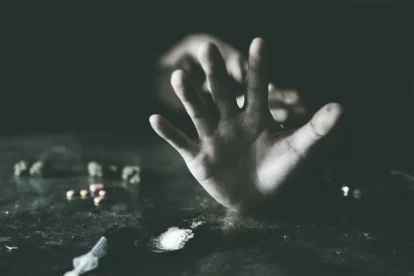When You Want to Quit: Dialectical Behavior Therapy and Weathering the Storms

You want to quit treatment. You thought it would be a day or two of detox and then smooth sailing, but the ship has hit a hurricane and you don’t like hurricanes – besides weather reporters, who does? It was hurricanes that started you on your path to addiction. When life became overwhelming, you entered the calm waters of your high where nothing could touch you, but those calm waters took a toll on your health, family, and friends. You knew it was time to clean up, so you willingly entered treatment. Detox was more difficult than you thought it would be, but now you’re sober for the first time in years and dealing with a wave of emotions – emotions you’re having difficulties controlling. You’re desperate to get out and get back to your calm waters.
Emotional dysregulation – those outbursts of emotion you’ve been dealing with – can interfere with your decision-making, impulse control, and desire to continue with treatment. Researchers from Michigan State University and the University of Maryland provide insight into how regulating negative emotions impacts your ability to stay in treatment.
The research team, led by Christopher Hopwood, recruited 115 patients from an inner-city substance use residential facility. During the course of the study, 21 patients dropped out of treatment. Hopwood and his team discovered that patients with fewer negative emotions remained in treatment more than patients who had heightened negative emotions. The researchers proposed that patients with fewer negative emotions were more able to tolerate the difficult periods during treatment. This doesn’t mean that you’re doomed to drop out of treatment and relapse if you have emotion regulation problems. It means that you may need some extra help in regulating your emotions from treatments like dialectical behavior therapy (DBT).
Get Help for Drug Addiction
Alta Mira is a Safe Place to Get Your Life on Track
What is Dialectical Behavior Therapy?
Dialectical behavior therapy is one of several types of addiction treatment therapies offered at Alta Mira. The goal of DBT is to provide you with the skills to navigate the hurricanes by changing your behavior. This is accomplished by encouraging you to learn new skills, such as finishing school or learning a new trade, that improve your self-esteem and build your confidence to handle stressors linked to your emotional outbursts. This will also help improve your ability to self-motivate, be more positive in your thinking, and mitigate your negative behaviors. Maintaining your new positive behaviors can be difficult when you’re away from treatment, so you are taught how to build a support structure that will help you continue to make positive choices – think of it as safe ports in a stormy sea of emotion. Learning all of the above skills requires a team consisting of a DBT therapist working with other health professionals involved with your care.
Your one-on-one sessions with your DBT therapist will progress through four modules: interpersonal communication, stress tolerance and reality acceptance, emotion regulation, and mindfulness. Interpersonal communication teaches you how to communicate effectively without judgment, and deal with conflict. Stress tolerance and reality acceptance provide you with coping mechanisms to acknowledge and accept difficult changes in your life and tolerate stressful situations. In the emotion regulation module you learn how to regulate intense emotions linked to stress, such as anger, frustration, and depression; and the mindfulness module will show you how to objectively analyze a situation so you can interact nonjudgmentally.
Receiving DBT while in treatment can help you cope with difficult emotions that can influence your decision to leave. As I’m sure you’ve been told a thousand times by anyone and everyone, leaving before you complete treatment can lead to dire consequences. According to a review in the journal Clinical Psychology Review, dropping out of treatment can result in legal and financial troubles, poor health, and relapse. This is why it’s important for you to learn how to weather the storms of your emotions while in residential treatment. It will set you up for success when you’re faced with environments, people, and situations that were linked to your substance use and abuse.
Everyone’s experiences with addiction and withdrawal are unique, which is why you need the compassionate expertise of Alta Mira, the premier Bay Area residential treatment center. Contact us today to begin your journey to wellness.






